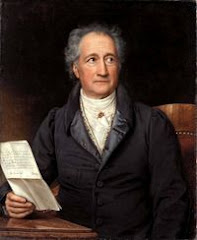I find the shift from spiritual society to secular society especially striking, particularly how certain aspects of spiritual movements were embraced for their liberating aspects, but then eventually left behind.
Now, I'm not arguing that the church was a wholly good influence throughout German history, becuase obviously, the church did some terrible things. But on the other hand, the church did some very good things.
The first instance that I noticed of this is with Luther, and the effect of the Reformation. The fact that he gave power and worth the normal working stiff, that he told people that they were so valuable to God, that they could interact with Him directly with no intercessor save for Christ himself - that is wonderful. I applaud that stance, for I also believe in a personal God. Yet the masses took this liberty and used it as a justification to shed blood, which Luther himself decried. It makes me sad that people took that power and used it to pit the German people against one another based on religion, and tear Germany apart with wars for a long, long time.
Another interesting point is that the idea that helped foster the Enlightenment - that humans are God's highest creation, and they have a responsibility to develop their natural talents, and to excersize and refine the abilities of intelligence - eventually helped people to abandon the Creator who placed such high worth on them, and led to the secularization of society. I am not saying that secular society is bad. I actually think that a theocracy is a good idea in the same way that communism is a good idea, that is, they both would work if people were completely altruistic, but show themselves unsustainable in a realistic world. I think that a secular government is necessary to preserve the rights of all people, whether they consider themselves spiritual or not. I just find it so ironic that the belief that people have intrinsic worth because they are fearfully and wonderfully created would eventually lead to the widespread belief that there is no Creator.
Personally though, I believe that whenever those who claim to be Christians stray away from the true Spirit of the Bible, they are bound to abuse the power that comes from the hierarchie that the institution of religion tends to create. I think that the Catholic Church of the 16th century is a perfect example of that. As far as the Scripture is concerned, the idea of being a leader for God on this earth, as portrayed by Christ in the New Testament, is that a person must lay his life down for his friends. It is a call to love and sacrafice, not power and glory, which is a message that many religious instutions tend to ignore.
Ruth Welsh
Sunday, March 9, 2008
Subscribe to:
Post Comments (Atom)







.jpeg)


1 comment:
I will delete you!
Post a Comment